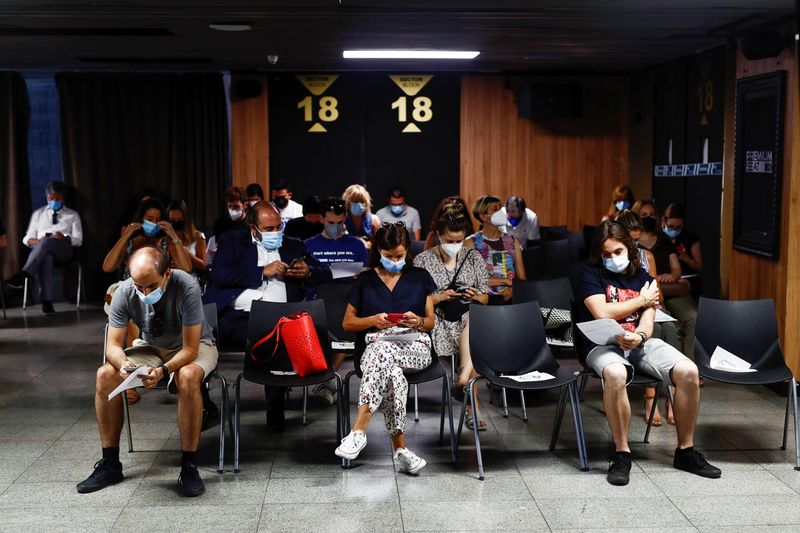MADRID (Reuters) -Spain surpassed 4 million coronavirus cases since the pandemic began on Tuesday after adding 43,960 new cases, as the more contagious Delta variant drives a surge of infections among unvaccinated young people.
The nationwide 14-day infection rate reached nearly 437 cases per 100,000 people on Tuesday, up from 368 cases a day earlier, health ministry data showed. Among 20 to 29-year-olds, that figure was 1,421 per 100,000.
“With the end of the school year, increased mobility, greater social interaction and super-spreader events, the cumulative incidence curve has risen again,” Spain’s Health Minister Carolina Darias said on Tuesday.
Cases began to surge again in the middle of June after a long decline, propelled by the Delta variant and more socialising among younger groups.
Although infection numbers have been rising steadily, daily deaths remain low, with the new cases primarily reported among younger, unvaccinated people who are less likely to fall seriously ill.
The country reported 13 new fatalities on Tuesday, bringing the total death toll total to 81,033. Darias said the current pressure on the country’s health system was nothing like it was in previous waves of the pandemic.
Some hard-hit Spanish regions have introduced new rules such as night-time curfews to tackle the surge.
The Catalan regional government said all activities would have to shut at 12:30 a.m. and eating or drinking in public areas would be banned. The measures are pending court approval.
“The most important thing at the moment is to contain the spread of the virus, which will require regional measures,” Darias said.
Spain’s tourism continues to be in a tight spot, with many businesses struggling to make ends meet. The same is happening across the border in Portugal, where the variant is responsible for all cases in the popular Algarve region.
(Reporting by Andrei Khalip and Catarina Demony; Editing by Sonya Hepinstall)
























